Uncategorized
-
 Animals
AnimalsThe mystery of vanishing honeybees is still not definitively solved
The case has never been fully closed for colony collapse disorder, and now bees face bigger problems.
By Susan Milius -
 Health & Medicine
Health & MedicineEvidence grows that normal childbirth takes longer than we thought
Another study finds that labor lasts longer than is traditionally taught — an insight that could mean fewer unnecessary cesarean deliveries.
-
 Anthropology
AnthropologyDNA solves the mystery of how these mummies were related
Two ancient Egyptian mummies known as the Two Brothers had the same mother, but different dads.
By Bruce Bower -
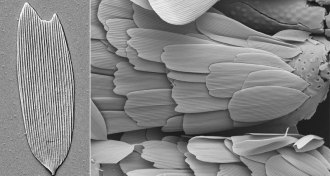 Paleontology
PaleontologyTiny scales in ancient lagoon may be the first fossil evidence of the moth-butterfly line
Fancy liquid-sipper mouthparts might have evolved before the great burst of flower evolution
By Susan Milius -
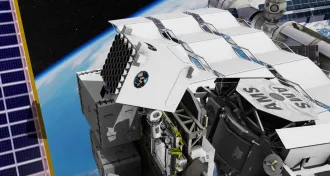 Astronomy
AstronomySpaceships could use blinking dead stars to chart their way
Timing signals from five pulsars allowed scientists to pinpoint an experiment’s place in space.
-
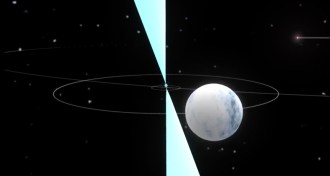 Astronomy
AstronomyTrio of dead stars upholds a key part of Einstein’s theory of gravity
A cosmic test fails to topple the strong equivalence principle.
-
 Astronomy
AstronomyPollution is endangering the future of astronomy
Astronomers discuss multiple threats from pollution that will make it harder to observe the night sky.
By Dan Garisto -
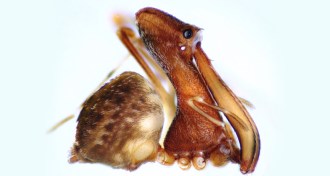 Animals
Animals18 new species of pelican spiders discovered
A researcher used old and new specimens to discover 18 species of pelican spiders from Madagascar.
By Dan Garisto -
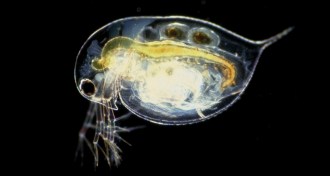 Climate
ClimateRising CO2 in lakes could keep water fleas from raising their spiky defenses
Rising CO2 in freshwaters may change how predators and prey interact in lakes.
-
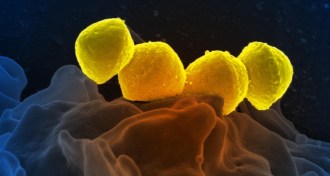 Health & Medicine
Health & MedicineNot all strep infections are alike and it may have nothing to do with you
Add-on genes in some bacteria shape the way strains interact with the immune system.
-
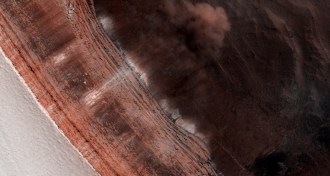 Planetary Science
Planetary ScienceShallow ice sheets discovered on Mars could aid future astronauts
Exposed water ice on steep Martian slopes suggest there’s a lot within a meter or two of the surface.
-
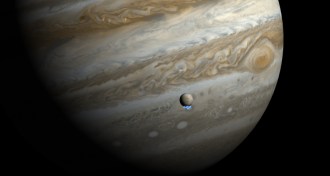 Planetary Science
Planetary ScienceHubble telescope ramps up search for Europa’s watery plumes
Astronomers are redoubling their efforts to confirm that the icy moon Europa spews water from its south pole.